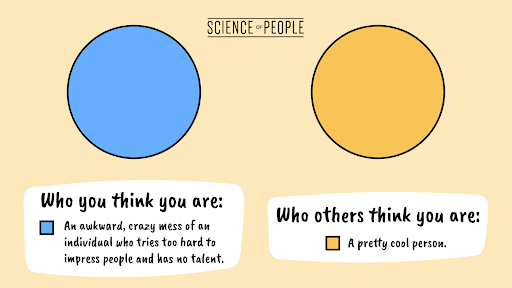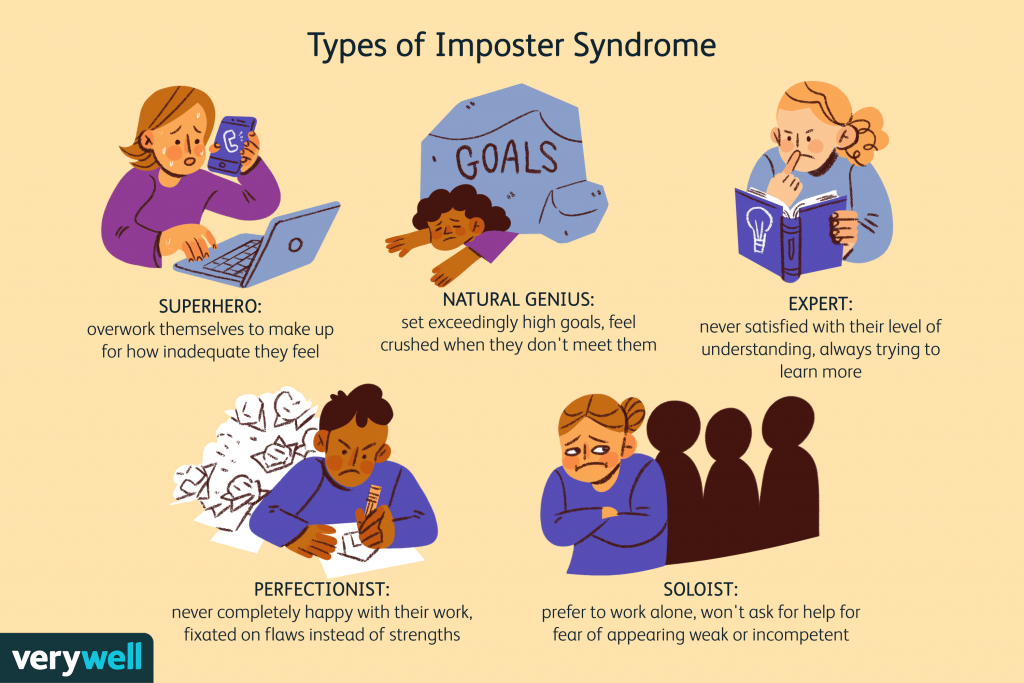Who? Me? Never.
You might have heard of this term before and may be familiar with what it might be, but what exactly is it? Imposter syndrome is simply the constant inability to acknowledge that one’s achieved success is a result of either one’s own efforts or skills or to disregard these achievements as deserved.
In simple terms, you may feel like a “fraud” or a “phony” and feel that someone might call you out for being one. Essentially, you will tend to downplay most, if not all, of your achievements as “luck” rather than acknowledging the fruits of your labor.
Prominently, imposter syndrome commonly occurs among minorities as they are conditioned to believe that they have to work “twice as hard” compared to those privileged.

Common symptoms of imposter syndrome:
- Feelings of stress, anxiety or depression due to feeling inadequate.
- Disregarding one’s competency.
- Fear of failing to meet someone’s expectations.
- Feeling doubtful of one’s success.
- Feeling uncomfortable with receiving praise.
- Feeling unsatisfied with current achievements.
As humans, we tend to look at ourselves as flawed or feel like an outlier, which makes the use of positive affirmations ineffective because it doesn’t ease the impression that you are a fraud.
However, you could find comfort in the fact that you aren’t experiencing this alone.
The 5 types of imposter syndromes and how to overcome them:

The Perfectionist
- These individuals always aim to be the best at everything that they do. They often set impossibly high goals for themselves despite their mental health being on the cliff. They experience major self-doubt when goals aren’t met.
- In order to overcome this, one needs to accept their mistakes and acknowledge them as part of the learning process because, truth is, no one is perfect.
The Superman
- These individuals tend to feel inadequate among colleagues. They struggle with work addiction by continuously pushing themselves to work as hard as possible to cover up their insecurities, even if the negative consequences takes a toll on their physical, mental and emotional well-being.
- Overcoming this requires one to practice self-validation, work on self-confidence and be more in tune with their own efforts and limitations. Remember, Rome wasn’t built in a day.
The Natural Genius
- These individuals struggle with not only perfectionism, but also venture out to achieve imposing goals on their first try, which definitely creates space for feelings of unworthiness, guilt and shame to foster if they are unable to complete or achieve these goals during their first tries.
- Overcome this by acknowledging that you are a work in progress. Improving your skills and try your best at small tasks first, rather than going after the most daring task yet.
The Soloist
- These individuals struggle with asking for assistance from others. They may feel that other individuals do not possess the level of competency similar to theirs or they may simply feel that they need to prove themselves through their own hard work.
- It is okay to be independent, however, there is no shame in seeking assistance from others. Teamwork and co-operation is key.
The Expert
- Despite being highly knowledgeable, these individuals tend to believe that they aren’t good enough. They may feel inexperienced compared to others if they do not have knowledge or answers related to specific topics.
- Know and understand that there is always room to learn and acquire new knowledge! Plus, one can engage in sharing knowledge with others, which could boost confidence and self-reliance.
Next time you’re feeling like an imposter, remember that you deserve all the praise and success in your path. There’s no such thing as luck.




One Reply to “What is Imposter Syndrome? – A Crash Course”